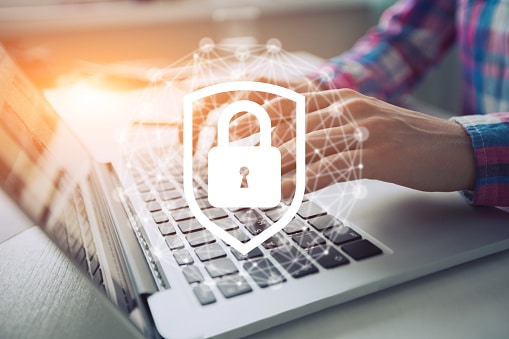Modern Cybersecurity Threats and Protecting Your Business
In the business world, cybersecurity has become a key issue. Though large businesses can be an obvious target, small-to-medium enterprises can be equally impacted by the rising number of data breaches.
This is especially true in terms of how cyber attacks impact a business’s operations, reputation, staff, and expenses. These crimes also impact employees and customers through the collection and distribution of personal information.
In this blog, we’ll take a look at how cybersecurity – and cybercrimes – have changed in Australia over the years and what you can do to protect your business from this ever-growing risk.
How Have Cybersecurity Threats Changed in Australia?
Malware
Malware and computer viruses have been around as long as computers. The Internet age led to a significant uptick in malware that would download onto computers through email attachments, unsafe websites that were harder to detect in the past, or peer-to-peer file-sharing platforms (e.g. torrent programs).
While modern-day computers and smartphones are much better at catching malware, the way malware is delivered has also evolved, particularly through phishing scams.
Scams
Scams inherently rely on deception to trick people into taking actions they otherwise wouldn’t. In this day and age, many of these scams can be unnervingly effective.
This could come in the form of a text that mimics a service people use to get them to click through to a spoofed webpage where their information will be stolen. Or they could unwittingly download malware that mimics a reputable program to their computer or smart device.
Scammers have even used AI tools to mimic loved ones’ voices or deepfake colleagues to manipulate average people into paying ransoms or transferring funds, respectively. AI has also made it easier for scammers to run their scams on mass scales through automation.
Cyber Attacks
Cyber attacks account for the vast majority of cyber crimes and techniques utilised by hackers, scammers, and cybercriminals. These include the aforementioned malware and scams, but also cover other methods.
A well-known type of cyber attack is that of the DDoS attack. This stands for Distributed Denial-of-Service attack and is designed to overwhelm a system, network, or website with massive amounts of traffic. This traffic eats up bandwidth and makes the system, network, or website inaccessible to its intended users.
There are many other cyber attack methods out there, including identifying and exploiting vulnerabilities in software or hardware before developers have had the chance to patch the vulnerabilities.
How Can These Threats Impact Your Business?
In just the last couple of years, there have been several major data breaches involving large Australian businesses.
These high profile breaches affected millions of customers and exposed sensitive information, which included customer names, addresses, passport numbers, driver’s licences, medical records, and more. Some of these breaches impacted about 40% of Australia’s population.
Such significant breaches serve as a reminder that any business, regardless of size, can become the target of cybercriminals and hacker groups. It’s important to recognise how substantial the impact of a cyber attack can be for your business, employees, and customers.
Improving Cybersecurity for Your Business with Setup4
Setup4 provides clients with an extensive range of cybersecurity and IT security solutions to mitigate the risks prevalent in 2024. This is done through three core pillars:
Pillar 1: Audit – Security Assessment
With an IT security assessment, we can assess what your business’s key cybersecurity threats are and the necessary steps to take to mitigate them.
We define the threats, evaluate your current security, assess the likelihood of which threats will impact your business the most, and then map out a defence strategy to be implemented.
Pillar 2: Protection – Antivirus Solutions
We offer endpoint security solutions for clients, which serve to protect all company network devices. These include laptops, servers, smart devices, etc.
Endpoint security includes, but is not limited to, antivirus solutions, safe web browsing, email and cloud security, encryption, intrusion detection, email spam and virus blockers, and more.
Pillar 3: Ongoing Support – Cyber Security
Ongoing cybersecurity support focuses on providing businesses with the tools they need to safely operate.
These supports include regular application and security updates, placing controls on application use to avoid potential risks, controlled admin privileges, operating system updates, and daily backups to ensure that the most important data is never lost.
If you’re ready to step up your cybersecurity efforts and protect your business, you can learn more about our IT security services or get in touch with us today.


